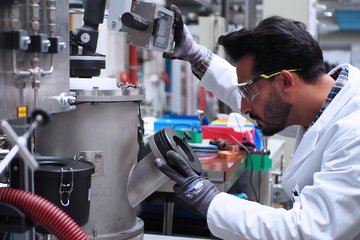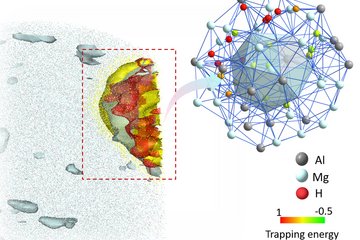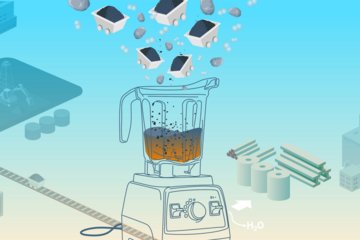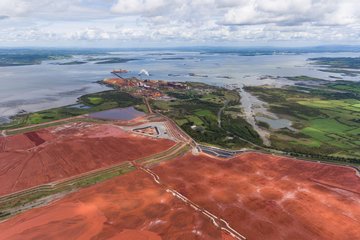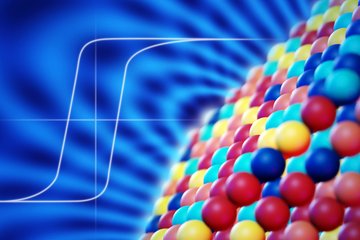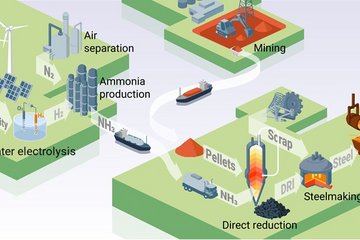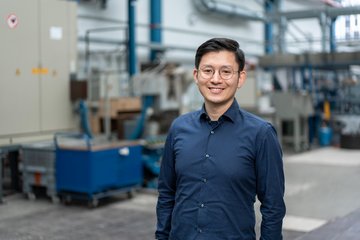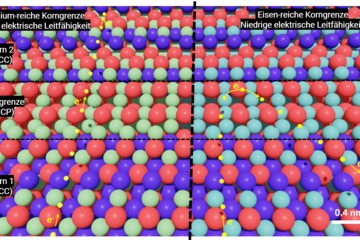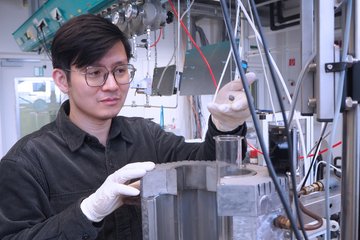Alle Typen
1.
Zeitschriftenartikel
Recrystallization and Grain Growth in Ultrafine-Grained Materials Produced by High Pressure Torsion. Advanced Engineering Materials 13, S. 245 - 250 (2011)
2.
Zeitschriftenartikel
Five-Parameter Grain Boundary Analysis by 3D EBSD of an Ultra Fine Grained CuZr Alloy Processed by Equal Channel Angular Pressing. Advanced Engineering Materials 13, S. 237 - 244 (2011)
3.
Zeitschriftenartikel
Fast, Physically-Based Algorithms for Online Calculations of Texture and Anisotropy during Fabrication of Steel Sheets. Advanced Engineering Materials 12, S. 1206 - 1211 (2010)
4.
Zeitschriftenartikel
Mobility of low angle grain boundaries. Philosophical Magazine A 90, S. 3107 - 3128 (2010)
5.
Zeitschriftenartikel
Grain boundary internal friction in bicrystals with different misorientations. Materials Science and Engineering A 521/522, S. 128 - 133 (2009)
6.
Zeitschriftenartikel
Prediction of cold rolling textures of steels using an artificial neural network. Computational Materials Science 46, S. 800 - 804 (2009)
7.
Zeitschriftenartikel
3D tomographic EBSD measurements of heavily deformed ultra fine grained Cu-0.17wt%Zr obtained from ECAP. Materials Science Forum 584-586, S. 434 - 439 (2008)
8.
Zeitschriftenartikel
Strain-induced migration of tilt grain boundaries. Scripta Materialia 58, S. 85 - 88 (2008)
9.
Zeitschriftenartikel
Motion of [100]-tilt grain boundaries under cyclic stresses. Materials Science & Engineering A 448, S. 242 - 248 (2007)
10.
Zeitschriftenartikel
Thermal stability of ECAP processed pure Copper. Materials Science & Engineering A 460 / 461, S. 204 - 213 (2007)
11.
Zeitschriftenartikel
Thermal Stability of ECAP Processed Pure Cu and CuZr. Inter. Journal of Materials Research 98, S. 269 - 275 (2007)
12.
Zeitschriftenartikel
Coupling between Grain Growth and Grain Rotation. Applied Phys. Letters 90, 161915 (2007)
13.
Zeitschriftenartikel
Grain boundary engineering by application of mechanical stresses. Materials Science Forum 558 / 559, S. 987 - 992 (2007)
14.
Zeitschriftenartikel
In-situ observations of coupled grain boundary motion. Philosophical Magazine 87 (32), S. 5017 - 5031 (2007)
15.
Zeitschriftenartikel
A texture component model for predicting recrystallization textures. Materials Science Forum 558 / 559, S. 1035 - 1042 (2007)
16.
Zeitschriftenartikel
Cyclic motion of [100] twist grain boundaries in aluminium bicrystals. Scripta Materialia 55, S. 907 - 910 (2006)
17.
Zeitschriftenartikel
Migration of subgrain boundaries under stress in bi- and multi-granular structures. Physica Status Solidi 200 (2), S. 339 - 345 (2003)
18.
Zeitschriftenartikel
Deformation Behaviour of Aluminium-Bicrystals. Advanced Engineering Materials 5, No.8, S. 563 - 566 (2003)
19.
Zeitschriftenartikel
On the influence of the grain boundary misorientation on the plastic deformation of aluminum bicrystals. Acta Materialia 51, S. 4719 - 4735 (2003)
20.
Buch
Korngrenzen auf Wanderschaft – Wege zum Design metallischer Werkstoffe. Franz Steiner Verlag, Stuttgart [Germany] (2007), 34 S.

